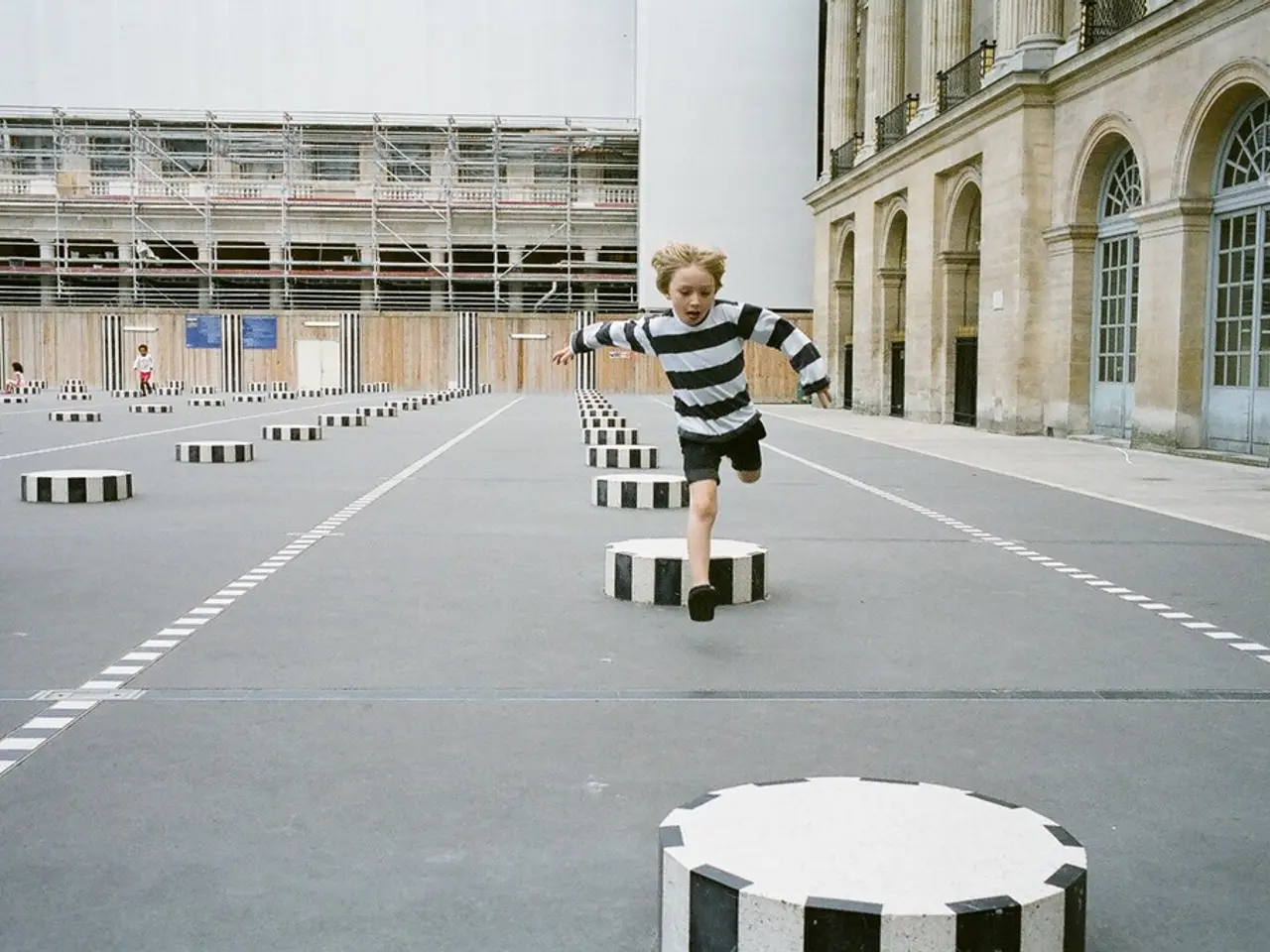Fostering Learning through Fun and Games: Methods to Enhance Educational Success
In the realm of education, play is no longer just a leisure activity for children. Instead, it has evolved into a fundamental tool that fosters holistic development across physical, cognitive, emotional, and social domains. This approach, known as enriching learning through play, is gaining traction in early childhood education worldwide.
Play offers numerous benefits for young learners. For instance, engaging in activities like climbing, running, or balancing builds fine and gross motor skills and overall coordination, promoting physical development. Cognitively, play enhances executive functions such as working memory, impulse control, cognitive flexibility, and problem-solving. It also nurtures creativity, planning, symbolic thinking, and academic readiness through hands-on, open-ended engagement.
Emotionally, play provides a safe space for children to express emotions, develop emotional intelligence, and build resilience by working through feelings and experiences. Socially, children improve communication, empathy, and social competence through interaction and collaboration during play.
Play fosters intrinsic motivation and lifelong learning, laying a foundation for curiosity and engagement throughout life. It stimulates neural pathways related to complex cognitive processes like planning, prioritizing, and multitasking, essential for executive function and self-regulation.
Enriched play environments, especially those incorporating loose parts, pretend play, and physical activity, significantly improve problem-solving, divergent thinking, and overall readiness for school. Play-based learning aligns with educational frameworks like the Early Years Foundation Stage (EYFS), which emphasize learning through exploration, creativity, and confident experimentation.
Integrating technology with play-based learning, such as interactive apps and educational games, can enhance engagement and cater to different learning styles. Finland's education system, for instance, emphasizes child-centered learning, integrating play into a holistic curriculum that promotes social skills and creativity.
The Reggio Emilia approach in Italy and the Montessori method, prevalent in many Australian preschools, also promote child-led play and exploration, leading to increased engagement and cognitive development. Observational assessments are crucial for evaluating children's interactions, problem-solving abilities, and creativity during play.
Constructive play, using materials like blocks or clay, develops fine motor skills, spatial awareness, and problem-solving abilities. Portfolios of children's work provide a means to track progress and evaluate learning outcomes over time.
Play facilitates social interactions, allowing children to engage in cooperative play, take turns, and learn about sharing. Enriching learning through play involves creating learning centers, interactive storytelling, outdoor play, and structured games that require teamwork.
Play-based learning is grounded in Jean Piaget's Theory of Cognitive Development, emphasizing the importance of active engagement in learning. Internationally, programs in Scandinavia prioritize outdoor, play-based learning, benefiting children both academically and socially. Symbolic play, such as role-playing, enhances cognitive skills, social understanding, and language development.
Aligning assessment methods to measure growth through play can ease anxieties tied to standardized assessments. Professional development programs focusing on play-based methodologies can equip educators with necessary skills for implementing play-based learning effectively. These programs should focus on child-led exploration and creativity to ensure teachers can adapt play strategies to various classroom settings.
Kindergartens in the United States adopting play-based curricula, like the HighScope approach, have shown improved social and cognitive skills in children. Play contributes to the development of fine and gross motor skills in children, improving coordination and strength. Games with rules foster cooperation, fairness, turn-taking, and strategic thinking, essential for social development and collaborative learning.
Fostering a culture that values enriching learning through play will prepare children for future academic and social challenges, promoting lifelong learning and resilience. Partnerships between educators and families can strengthen the role of play in early childhood education, leading to a holistic approach to child development.
Singapore adopts a structured yet flexible curriculum, incorporating playful learning experiences into daily activities to promote problem-solving and critical thinking. Play is a fundamental mechanism in early childhood education, fostering curiosity and creativity. New Zealand's Te Whāriki curriculum encourages children to learn through meaningful experiences within their families, communities, and nature.
In conclusion, enriching learning through play is a powerful tool in early childhood education, fostering curiosity, creativity, and holistic development. By understanding play's multifaceted role, educators and caregivers can create engaging, meaningful, and developmentally appropriate learning experiences for young learners.
Professional development programs should focus on incorporating play-based methodologies to foster positive outcomes in education-and-self-development. This focus on play can lead to personal-growth and enhanced learning experiences, aligning with international educational frameworks like the Early Years Foundation Stage (EYFS) and the HighScope approach.
By creating learning environments that facilitate symbolic play, such as role-playing, cooperative play, and games, educators can nurture children's creative thinking, problem-solving abilities, and social development. This approach, rooted in Jean Piaget's Theory of Cognitive Development, promotes lifelong learning and resilience, ultimately preparing young learners for future academic and social challenges.




